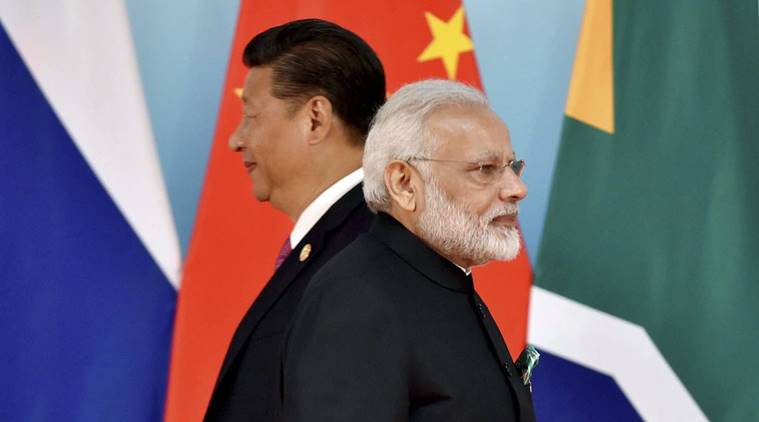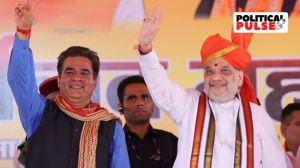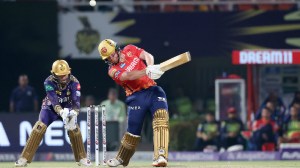- India
- International
With thaw in India-China relations, Delhi to push for NSG membership
Membership of the NSG, the top club of 48 countries which controls access to technology and guards against non-proliferation, is important for India to get access to cutting-edge high-technology.
 Delhi had reached out to China in April and tried to convince interlocutors in Beijing to lift their objections at the NSG, but there has been no public articulation by Chinese leadership about a change in their position so far. (AP/PTI/File)
Delhi had reached out to China in April and tried to convince interlocutors in Beijing to lift their objections at the NSG, but there has been no public articulation by Chinese leadership about a change in their position so far. (AP/PTI/File)
Buoyed by its entry into three of the four multilateral export control regimes, India is depending on its partners, led by the US and France, to push for membership at the Nuclear Suppliers Group (NSG) plenary meeting on Thursday and Friday in Jurmala, Latvia, sources told The Indian Express.
Membership of the NSG, the top club of 48 countries which controls access to technology and guards against non-proliferation, is important for India to get access to cutting-edge high-technology.
READ | India’s membership to NSG: Delhi works on Beijing to drop objections on n-club entry
The Thursday-Friday plenary session of the group will be the first such meeting after New Delhi secured membership of the three export control regimes — India became a member of the Missile Technology Control Regime (MTCR) in June 2016, the Wassenaar Arrangement in December 2017, and the Australia Group in January 2018.
While discussions on the US-North Korea summit on a “complete denuclearisation of the Korean Peninsula” and the US withdrawal from the Joint Comprehensive Plan of Action (JCPOA) — the nuclear deal between P-5+1 and Iran — are expected to dominate the NSG plenary session, New Delhi hopes to take advantage of the thaw in its relationship with China to push its case.

Delhi had reached out to China in April and tried to convince interlocutors in Beijing to lift their objections at the NSG, but there has been no public articulation by Chinese leadership about a change in their position so far. Since then, Prime Minister Narendra Modi and Chinese President Xi Jinping have met twice in Wuhan (in April) and Qingdao (in June) and have held discussions on a wide range of issues.
On April 10, Joint Secretary (Disarmament and International Security) Pankaj Sharma had met Beijing’s top interlocutor Wang Xun, the head of the disarmament division in the Chinese government.
About two years ago, in June 2016, Wang had blocked a proposal to include India as a member of the elite export control group at a plenary meeting in Seoul. At that time, Foreign Secretary S Jaishankar had visited Seoul to lobby with other NSG countries, while Modi had requested the Chinese President in Tashkent, on the sidelines of the SCO summit, on the issue. However, the Chinese side had not yielded to the Indian request.
Faced with China’s objections, India had approached the four export control regimes separately to enter the NSG.
“This strategy of approaching all the export control regimes in an individual and case-to-case basis has made India’s claim much stronger and more credible,” said a source privy to India’s strategy.
China, which had sought to club India and Pakistan together on the basis of both being non-signatories of the Nuclear Non-Proliferation Treaty (NPT), has asked the NSG countries to adopt a “criteria-based approach” — which essentially means that either both can get into the group or none.
But most of the NSG countries, including American and French interlocutors, have pointed out how Pakistan’s nuclear programme, led by its nuclear physicist A Q Khan, violated all norms of nuclear non-proliferation and had links with the North Korean nuclear programme, while New Delhi has a clean track record on non-proliferation.
Apr 26: Latest News
- 01
- 02
- 03
- 04
- 05







































